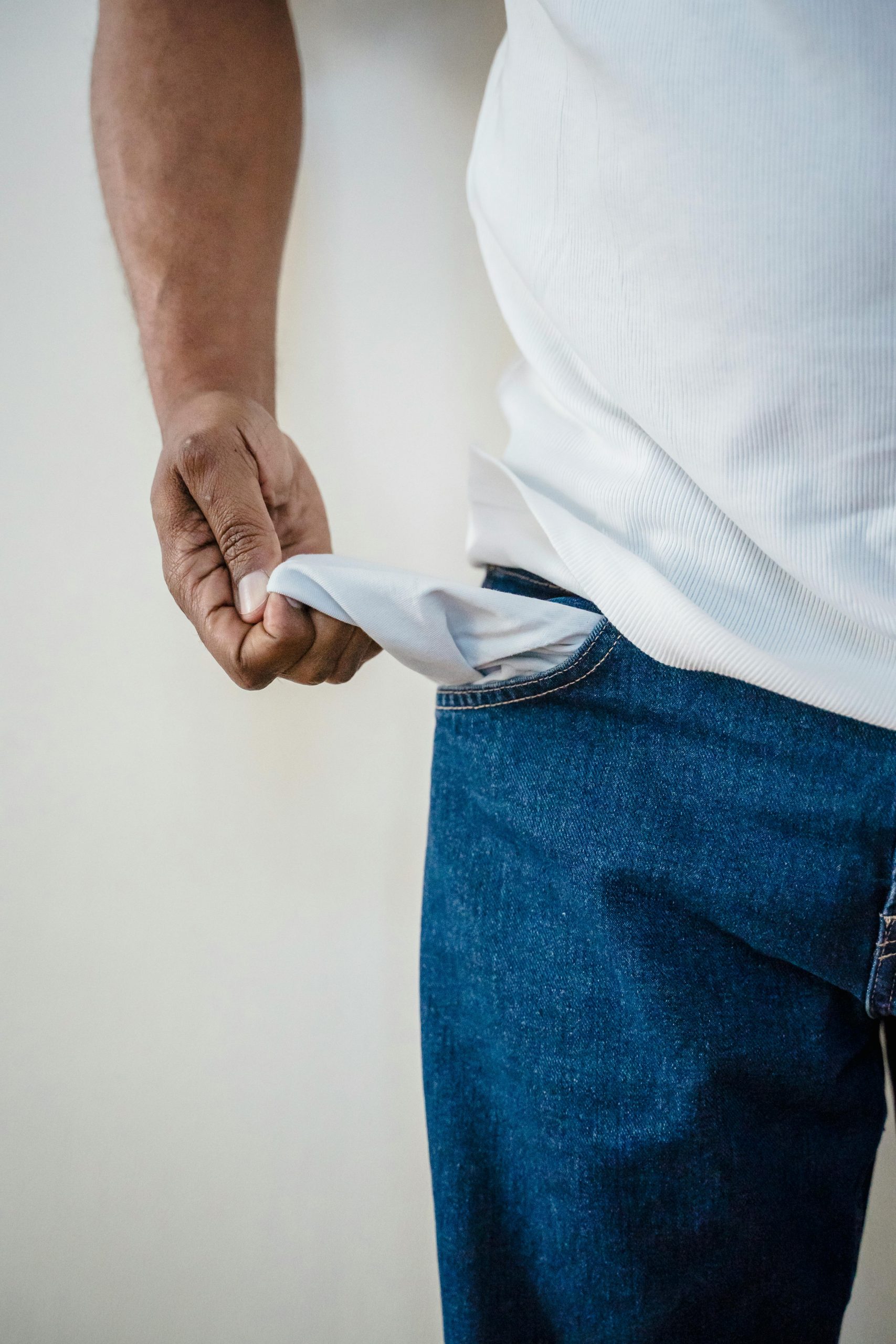When it comes to money, there’s no shortage of opinions about why some people have it and others don’t. On one side, there’s the “bootstraps” crowd, aka people who believe financial hardship is a direct result of poor decision-making. According to this view, being broke is largely a choice, a consequence of laziness, bad habits, or failure to plan.
On the other side, there are those who argue that the system is designed to keep people poor. From housing costs to healthcare, from wage stagnation to student debt, systemic failures make it incredibly difficult for the average person to build wealth, no matter how hard they work.
So which is it? Is being broke the outcome of personal failure or proof that the system is broken? The truth is complicated.
The Personal Responsibility Argument
There’s a certain logic to the idea that if you spend more than you earn, you’ll end up broke. And in some cases, that’s absolutely true. Overspending, poor budgeting, and lack of financial literacy can lead to money problems, even for people with decent incomes.
Some people dig themselves into holes with unnecessary luxury purchases, frequent takeout meals, or credit card debt racked up for things they didn’t need. Others delay saving for emergencies or retirement until it’s too late. From this lens, being broke often appears to be the result of a series of bad choices.
Personal responsibility does matter. No system can guarantee success for someone who consistently makes poor financial decisions. But this view only tells part of the story, and it conveniently ignores the fact that many people are doing everything right and still can’t get ahead.
The Systemic Roadblocks to Financial Stability
Now, let’s flip the script. What if someone is working full-time, or even multiple jobs, and still can’t afford rent, healthcare, or groceries without relying on credit? What if someone made the “responsible” decision to get a college education, only to be saddled with $100,000 in debt and a job that pays $45K a year?
Wages have barely increased in real terms over the past few decades, but the cost of living has exploded. Rent in many major cities has doubled (or more) in a single generation. Healthcare premiums and deductibles are sky-high. Childcare costs rival mortgage payments. And don’t even get us started on how much groceries cost in 2025.
This isn’t about poor choices—it’s about systems that make it nearly impossible to build financial momentum unless you’re already ahead. It’s about wealth being concentrated in the hands of a few while the rest tread water or sink.
Generational Wealth: The Secret Advantage
One of the most overlooked differences between being broke and building wealth is whether you start with a safety net. Did your parents help you with a down payment on a house? Did they cover your college tuition? Would they bail you out if you had a medical emergency or lost your job?
Many people who appear “financially responsible” had help along the way. And there’s no shame in that. But it’s not a level playing field. Starting with generational wealth (even a little) gives people options, flexibility, and time that others simply don’t have. If being broke is a choice, it’s one some people never even had the luxury of making differently.

The Psychology of Poverty
Another piece of the puzzle? The emotional and psychological toll that comes with being broke. Constant stress, decision fatigue, and survival-mode thinking can keep people stuck in cycles of poverty. If you’ve ever had to decide whether to pay rent or buy groceries, you know that “long-term planning” feels laughably out of reach.
People who grow up in poverty often lack access to financial education, mentorship, or even basic examples of wealth-building behaviors. They may not trust banks, avoid credit due to fear or past trauma, or feel ashamed asking for help. And even when they want to make better choices, the path forward isn’t always obvious—or even available.
It’s easy to tell someone to save more. It’s harder to tell them how to save when they’re already choosing between insulin and rent.
Culture, Shame, and the “Self-Made” Myth
In America, the narrative of the “self-made” person runs deep. We love stories about people who went from rags to riches, because it reinforces the idea that anyone can do it. But that myth can be incredibly damaging because it implies that if you don’t succeed, it’s your fault.
Shame keeps people quiet about their financial struggles. It makes them feel like they’re failing at something that’s actually stacked against them. It reinforces a culture where asking for help or demanding systemic change is seen as a weakness. There’s nothing weak about recognizing that the game isn’t fair.
So, Is Being Broke a Choice or a System Failure?
The answer, frustratingly, is both.
Some people stay broke because of the choices they make. But far more people are broke because of the choices they never got to make. Because the system they’re in doesn’t pay a living wage, doesn’t offer affordable housing, and doesn’t support them when life throws inevitable curveballs.
Recognizing systemic failure doesn’t absolve individuals of responsibility. But it should make us all more compassionate—and more willing to challenge the policies and structures that keep people trapped in cycles of scarcity.
We need to stop asking why individuals are broke and start asking why the richest country in the world still has millions of people who work full-time and can’t afford basic necessities.
What do you think? Is being broke mostly a personal choice, or does the system bear more of the blame?
Read More:
Here’s Why Poor People Stay Poor
The Surprising Benefits of Saving Habits that Make You Look Poor
Read the full article here














